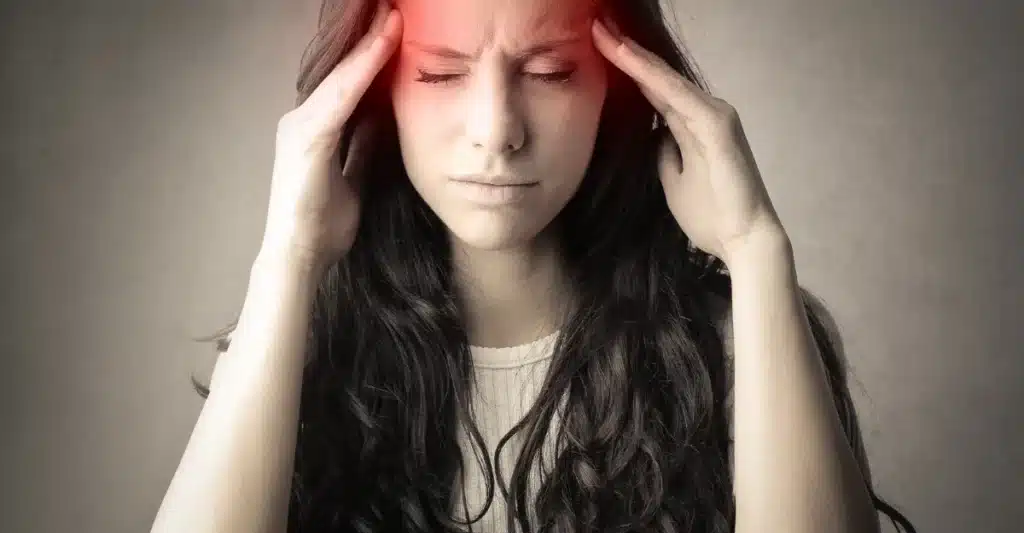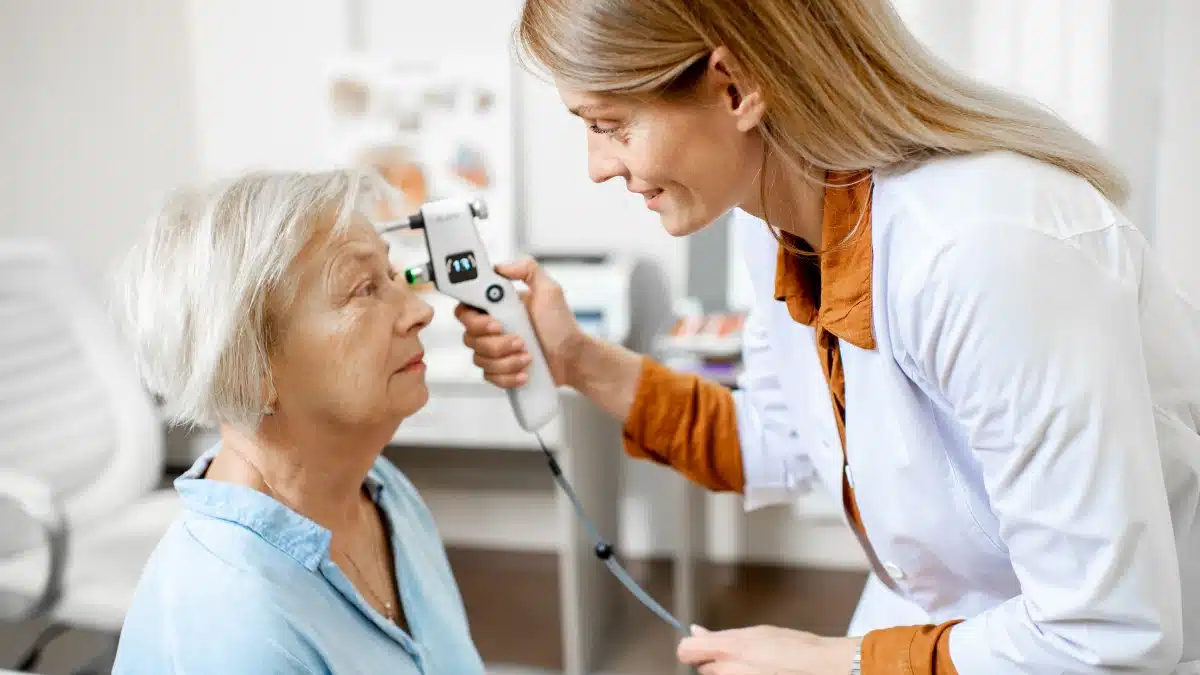High eye pressure, also known as Ocular Hypertension, refers to increased pressure within the eye.
It could be an early sign of Glaucoma, a disorder that causes optic nerve damage.
Persistently high eye pressure can increase the risk of developing Glaucoma.
Glaucoma is a leading cause of permanent vision loss in many individuals.
Monitoring and managing high eye pressure is essential to avoid long term vision disorders.
This article will explore what high eye pressure is, its symptoms, causes, and how it is treated.
What is high eye pressure
high eye pressure occurs when pressure in the eyes increases, leading to a potential risk factor of Glaucoma.
The eyes are hollow globe-like structures filled with a transparent liquid known as aqueous humor.
This fluid keeps your eyes in shape and nourishes them.
However, if there is too much fluid or it does not drain properly, the pressure inside your eyes might rise, resulting in high eye pressure.
Understanding the symptoms of high eye pressure in the early stage is essential to avoid long-term vision-related issues.
Want to know about pressure behind the eye? Read our article: Pressure Behind the Eye and its Potential Risk Factors
High eye pressure symptoms
Some of the symptoms of high eye pressure are blurred vision, eye pain, eye pressure headaches, and increased sensitivity to light.
Symptoms of high eye pressure, or elevated Intraocular Pressure (IOP), can be subtle or even absent in the early stages.
Making regular eye checkups important for early detection of high eye pressure symptoms.
Let’s discuss these symptoms in detail:
Blurry vision: Blurry vision is the primary symptom of high eye pressure. This blurriness may come and go, so keep an eye out for signs of any changes in eyesight.
Halos around light: Seeing colorful halos surrounding light, especially at night, could indicate high eye pressure. This symptom may be mild, but it should not be overlooked.
Headaches: Research states that persistent headaches, particularly around the eyes, can be a warning indication.
While many factors might cause headaches, ocular pressure should be considered a possible cause.
 Source: bowie15 from Getty Images
Source: bowie15 from Getty ImagesVomiting and nausea: In severe circumstances, high eye pressure can cause nausea and vomiting. While this is a less common symptom, it requires prompt attention.
Redness: If you notice red eyes frequently and you feel uncomfortable, this could be related to high eye pressure. This pain might be slight or severe, so don’t disregard any persistent eye pain.
Understanding these symptoms is essential for safeguarding your ocular well-being.
Know what’s the right eye pressure range with our article: Understanding Eye Pressure Range: Normal, High, and Low
What causes high eye pressure
Factors such as underlying medical conditions and lifestyle choices can contribute to increased eye pressure.
Understanding these causes is crucial for early detection and effective management of eye health.
The risk of high eye pressure increases with age. Regular eye exams are crucial to monitor and manage eye pressure.
A family history of Glaucoma or other eye conditions may also lead to high eye pressure.
Using medications such as steroids may also elevate eye pressure.
Lifestyle choices can have an impact on eye health. Smoking, a poor diet, and excessive alcohol intake may lead to elevated ocular pressure.
Identifying these causes is essential for early identification of potential vision problems.
Regular eye checkups are essential for effective management and maintaining optimal eye health.
Explore the various options for lowering your eye pressure with our article: How to Lower Eye Pressure and Improve Your Vision
How is high eye pressure treated
Treating high eye pressure is essential for preventing Glaucoma from developing or progressing.
Individuals can effectively manage their Intraocular Pressure with timely intervention and appropriate treatment.
This, in turn, helps reduce the risk of Glaucoma-related complications.
Let’s discuss treatments to reduce high eye pressure:
Medications: Your doctor may prescribe eye drops such as Prostaglandin Analogs or beta-blockers to lower your eye pressure.
When used as suggested, these drops can be quite effective.
Lifestyle changes: Healthy lifestyle, which includes minimizing alcohol consumption, smoking, and eating a nutritious diet that promotes eye health.
Reducing stress: Studies suggest that excessive stress levels can affect eye pressure.
Use relaxation techniques to reduce stress such as meditation or yoga.
Want to know about eye pressure eye drops? Read our article: Eye Drops for Eye Pressure: An Effective Way to Improve Your Vision
Summing up
High eye pressure requires vigilant attention due to its potential link to Glaucoma.
Glaucoma is a primary cause of irreversible vision loss.
To avoid vision issues, it is essential to recognize the signs of high eye pressure, such as blurry vision, headache, and redness.
Understanding the causes of high eye pressure, like a family history of Glaucoma, prevents eye-related problems.
Regular eye checkups and a healthy lifestyle are essential in preventing and treating excessive eye pressure.
Consult your eye care specialist if you have any eye health concerns.
Frequently Asked Questions
What causes high eye pressure in teenagers?
High eye pressure in teenagers can be attributed to various factors.
These include genetics, underlying medical conditions, eye injuries, certain medications, or lifestyle habits like excessive screen time and limited outdoor activities.
Can lack of sleep cause high eye pressure?
Yes, a lack of sleep can elevate eye pressure temporarily.
Sleep deprivation may affect the body’s fluid regulation, potentially leading to increased intraocular pressure.
When should one seek medical attention for high eye pressure?
It’s advisable to consult an eye specialist if you experience symptoms like eye pain, or vision changes or are at risk due to family history or other factors.
Regular eye exams are essential for early detection.
Can blocked sinuses cause high eye pressure?
Blocked sinuses can indirectly affect intraocular pressure by increasing pressure in the surrounding areas, which might temporarily elevate eye pressure.
However, this elevation is typically transient and not a primary cause of sustained high eye pressure.
Is high eye pressure the same as Glaucoma?
High eye pressure, or elevated intraocular pressure, is a risk factor for Glaucoma but not synonymous with the condition.
Glaucoma involves optic nerve damage and vision loss, while high eye pressure is an early indicator.
When referencing outside resources, GoodrxMedicine always provides full citations. To learn more about the measures we use to maintain the quality of our content, please review our Content Information Policy.











